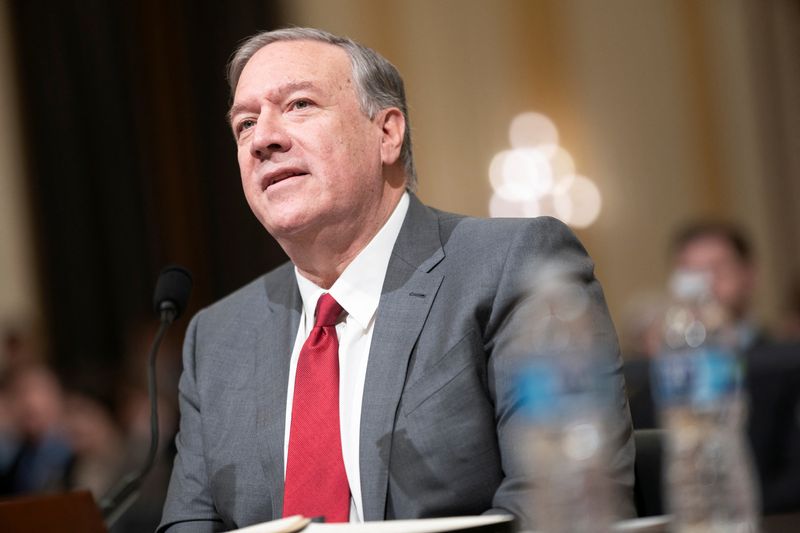By Patricia Zengerle
WASHINGTON (Reuters) – Former U.S. President Donald Trump’s secretary of state, Mike Pompeo, added his voice on Monday to growing calls from prominent Republicans to pass billions of dollars in aid for Ukraine, after some party members accused aid opponents of succumbing to Russian propaganda.
Democratic President Joe Biden’s request for $95 billion for Ukraine, Israel and other allies passed the U.S. Senate with 70% support but has been stalled for weeks in the House of Representatives as Republican House Speaker Mike Johnson has refused to allow a vote.
As lawmakers returned to Washington from a two-week break on Monday, Johnson gave no word of any plans for a vote on Biden’s supplemental request.
Pompeo, a former House member, issued a public letter on Monday urging Johnson to bring up the bill in the House.
“We encourage you to lead with conviction and bring the aid package to a vote,” Pompeo said in a letter written with John Walter, president of the Hudson Institute, where Pompeo is a fellow.
Johnson’s office did not comment on the letter, or recent assertions by the Republican chairpersons of two House national security committees that “Russian propaganda” is influencing party members.
Representative Michael McCaul, who leads the House Foreign Affairs Committee, told Puck News last week: “Russian propaganda has made its way into the United States, unfortunately, and it’s infected a good chunk of my party’s base.”
And on Sunday, Representative Mike Turner, who heads the House Intelligence Committee, told CNN’s “State of the Union” McCaul’s contention was “absolutely true.”
Turner said: “We see directly coming from Russia attempts to mask communications that are anti-Ukraine and pro-Russia messages, some of which we even hear being uttered on the House floor.”

For example, Turner said some members of Congress “incorrectly” say that the conflict between Russia and Ukraine is over NATO.
“To the extent that this propaganda takes hold, it makes it more difficult for us to really see this as an authoritarian versus democracy battle,” Turner said.













